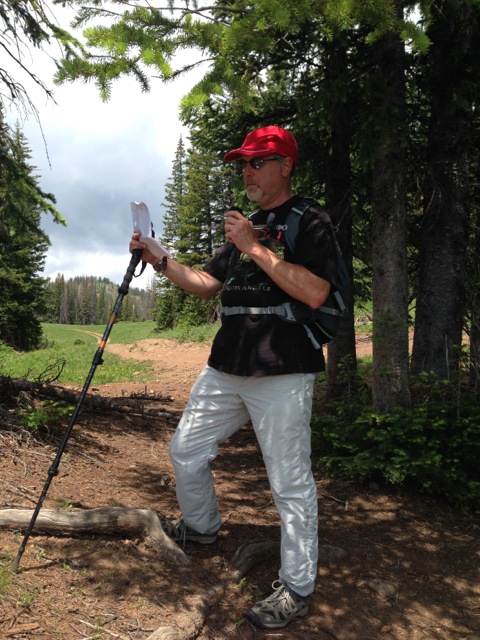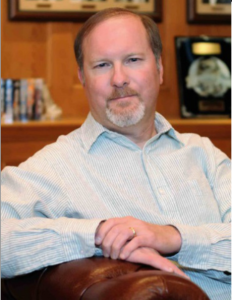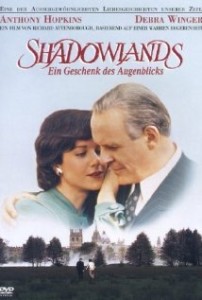A guest post by Patrick Sullivan.
Part of becoming a writer is learning to chase dreams. What ifs, fragments of ideas, whispers of truth and falsehood mixed together into a cocktail that sends the imagination off in any number of different directions. It can be taken for granted once you get used to it, having the ability to wrestle with ideas and draw them from the strangest places.
Yet many look down on this skill, the ability to daydream and find ideas. People tease about daydreams and how you should live in the now, not in your head. But where would we be without those who think big? From science that changes the course of human history all the way to stories that inspire people to be what they are capable of, find who they really can be, daydreams can send ripples across all of human existence.
A personal example of such inspiration is recalling a talk Tracy Hickman has given twice at Superstars Writing Seminar where he talks about the time he met a veteran who was gravely wounded, but still saved lives thanks to the inspiration he found in books Tracy and Margaret Weiss wrote, and what that moment meant to him.
Being able to give courage to the fearful, hope to the hopeless, and belief to those without is a powerful tool, and storytelling can do that in a way nothing else can. Stories are funny in that they can appear trivial, yet have so much hidden power to inspire.
For me, the most personal example of inspiring others came about because of my alpha reader. I tend not to let many people near my novels in their early state, but one old college friend insisted, so after doing continuity cleanups and the like, I send ‘em her way. One of those novels stuck with her to the point that we had a text conversation one evening where she was imagining a future for those characters after the events of my novel.
Watching her imagination soar because of a story I wrote, inspired by characters I crafted in a world of my own design, felt amazing. Especially when I considered the fact this happened months after she read the book. That character, those scenarios, rooted themselves so deeply in her head that she needed to let them run free. It tells me a lot about how writers who are okay with fan fiction feel about others’ reactions to their work. It can be intoxicating.
So now anytime I’m writing a story, I ask myself what I hope to inspire in my readers. It doesn’t need to be preachy and message-filled, but it should let them take away something. Perhaps it’s simply a good laugh, or maybe something more. But I always do it with purpose, because I want anyone who comes to my stories to walk away better for having read them. To be inspired.
Patrick Sullivan is an explorer of ideas across many forms, from digital data and code to stories. He grew up in southern Arkansas, but found his true home in Denver, Colorado, where he now works in the software industry while writing tales he intends to someday share with the masses.

 I write and publish four or more novels a year, and my creative office doesn’t have either a computer or a desk. It also doesn’t have the distraction of a constantly ringing phone, an endless succession of emails that need to be responded to (or marked as spam), doorbells to be answered with the latest UPS package of cat food from amazon prime (and the related distraction of cats who want me to feed them that food), or employees or family members who lie by assuring me “this will only take a minute.”
I write and publish four or more novels a year, and my creative office doesn’t have either a computer or a desk. It also doesn’t have the distraction of a constantly ringing phone, an endless succession of emails that need to be responded to (or marked as spam), doorbells to be answered with the latest UPS package of cat food from amazon prime (and the related distraction of cats who want me to feed them that food), or employees or family members who lie by assuring me “this will only take a minute.” I have so programmed myself to write this way that now I find it very frustrating to sit my butt in a chair and stare at a screen for hours on end. When I’m walking, I am inspired by the landscapes in my beautiful Colorado. It may not be a genuine alien world, but I can imagine that—and all without the constant real-world distractions that harass a writer cooped up in a home office.
I have so programmed myself to write this way that now I find it very frustrating to sit my butt in a chair and stare at a screen for hours on end. When I’m walking, I am inspired by the landscapes in my beautiful Colorado. It may not be a genuine alien world, but I can imagine that—and all without the constant real-world distractions that harass a writer cooped up in a home office. The scenery itself is often inspirational, and when possible I try to be in a place that reminds me of what I’m writing. I’ve spent a lot of time in the Great Sand Dunes National Park in Colorado or Death Valley in California as I write my Dune novels with Brian Herbert; I’ve been in a snowstorm in the Sierra Nevada mountains while writing about Han Solo and Princess Leia on the polar icecap of a planet, and I spent time hiking around the Anasazi cliff ruins of Mesa Verde while writing about derelict alien cliff ruins in my Saga of Seven Suns.
The scenery itself is often inspirational, and when possible I try to be in a place that reminds me of what I’m writing. I’ve spent a lot of time in the Great Sand Dunes National Park in Colorado or Death Valley in California as I write my Dune novels with Brian Herbert; I’ve been in a snowstorm in the Sierra Nevada mountains while writing about Han Solo and Princess Leia on the polar icecap of a planet, and I spent time hiking around the Anasazi cliff ruins of Mesa Verde while writing about derelict alien cliff ruins in my Saga of Seven Suns. But sometimes I extend the getaway into a camping trip, so that I can really move my working office onto a picnic table out in a beautiful National Forest site. That’s where I’m writing this, sitting at a table under a lodgepole pine tree at a perfect campsite next to a river 85 miles up the Cache la Poudre canyon in northern Colorado. An extra battery for the laptop, and no internet connection, a growler of my favorite microbrew beer: It’s the perfect office, alone in the forest (except for a moose visitor who just walked through the campground), away from it all where I can concentrate on being in the worlds inside my head. It’s like taking a vacation in an exotic place with my imaginary friends.
But sometimes I extend the getaway into a camping trip, so that I can really move my working office onto a picnic table out in a beautiful National Forest site. That’s where I’m writing this, sitting at a table under a lodgepole pine tree at a perfect campsite next to a river 85 miles up the Cache la Poudre canyon in northern Colorado. An extra battery for the laptop, and no internet connection, a growler of my favorite microbrew beer: It’s the perfect office, alone in the forest (except for a moose visitor who just walked through the campground), away from it all where I can concentrate on being in the worlds inside my head. It’s like taking a vacation in an exotic place with my imaginary friends.
